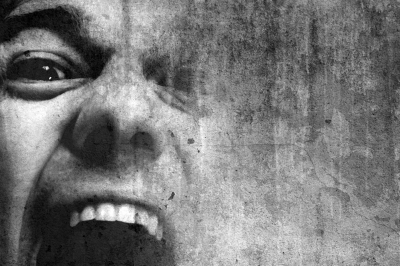 Antisocial personality disorder (ASPD) is “a mental health condition in which a person has a long-term pattern of manipulating, exploiting, or violating the rights of others.” (Medline Plus, 2012). Persons with ASPD display “a pervasive pattern of disregard for, and violation of, the rights of others that begins in childhood or early adolescence and continues into adulthood” (American Psychiatric Association, 2000).
Antisocial personality disorder (ASPD) is “a mental health condition in which a person has a long-term pattern of manipulating, exploiting, or violating the rights of others.” (Medline Plus, 2012). Persons with ASPD display “a pervasive pattern of disregard for, and violation of, the rights of others that begins in childhood or early adolescence and continues into adulthood” (American Psychiatric Association, 2000).
Causes of Antisocial Personality Disorder
There are no known causes of antisocial personality disorder. However, many theories have been posited, with numerous mental health professionals suggesting a biopsychosocial model of causation. [showmyads]This means that an individual’s genetic makeup, personality and social environment (especially during early childhood) are all thought to play a role in the development of the condition. Children with an alcoholic or antisocial parent are at an increased risk of developing the disorder later on in life. Men are also more likely to be affected by ASPD than women (Medline Plus, 2012).
Symptoms of Antisocial Personality Disorder
Medline Plus (2012) reports:
A person with antisocial personality disorder may:
- Be able to act witty and charming
- Be good at flattery and manipulating other people’s emotions
- Break the law repeatedly
- Disregard the safety of self and others
- Have problems with substance abuse
- Lie, steal, and fight often
- Not show guilt or remorse
- Often be angry or arrogant
One of the most disturbing characteristics of people with antisocial personalities (sometimes called psychopaths or sociopaths) is that they show a lack of concern for the welfare of others. They may appear to have no conscience or morals as they regularly take advantage of others for their own benefit and show no remorse over their misdeeds. Persons with ASPD also tend to be irresponsible, deceitful and reckless, and may become engaged in criminal activity.
Societal Impact of Antisocial Personality Disorder
Individuals with antisocial personality disorder have an adverse impact on society. Their absence from the workforce, coupled with the “significant levels of harm and distress to their intimate partners and children, and to others as a result of the crimes they commit” place a heavy burden on the resources and proper functioning of their local communities (McMurran & Howard, 2009). Men and women with the condition also facilitate the development of a successive generation of ASPD sufferers, through inadequate parenting (Jaffee et al., 2004, cited in McMurran & Howard, 2009).
How is Antisocial Personality Disorder Diagnosed?
As with all personality disorders, a diagnosis of APSD must be made by a qualified mental health professional (such as a psychiatrist or a psychologist) and can only be assigned to persons who are at least 18 years of age. “Unlike the other personality disorders, however, ASPD requires evidence that a similar disorder existed in childhood. To make the diagnosis of ASPD, a diagnosis of Conduct Disorder (CD) prior to age 15 is required” (McMurran & Howard, 2009). About 50% of adults diagnosed with antisocial personality disorder satisfy the criteria for CD before they are 10 years old; approximately 95% of ASPD sufferers meet the criteria by age 12 (Swanson, Bland & Newman, 1994, cited in McMurran & Howard, 2009).
Treatment for Antisocial Personality Disorder
Persons with ASPD do not usually seek treatment on their own. In many cases, therapy is sought only after the sufferer receives a court order to get professional help. There is no known cure for antisocial personality disorder but treatment typically involves long term psychotherapy, with medication prescribed to help specific symptoms.
References
American Psychiatric Association. (2000). Diagnostic and statistical manual of mental disorders (4th ed., text revision). Washington, DC: Author.
McMurran, M. & Howard, R. (2009). Personality, personality disorder and violence: An evidence based approach. United Kingdom: John Wiley & Sons Inc.
Medline Plus (2012). Antisocial personality disorder. Retrieved on May 21, 2012 from http://www.nlm.nih.gov/medlineplus/ency/article/000921.htm
Photo courtesy of Image(s): FreeDigitalPhotos.net
Related articles
- What turns a person into a shooter? (wtvr.com)
- Antisocial Personality Disorder Symptoms (mademan.com)


